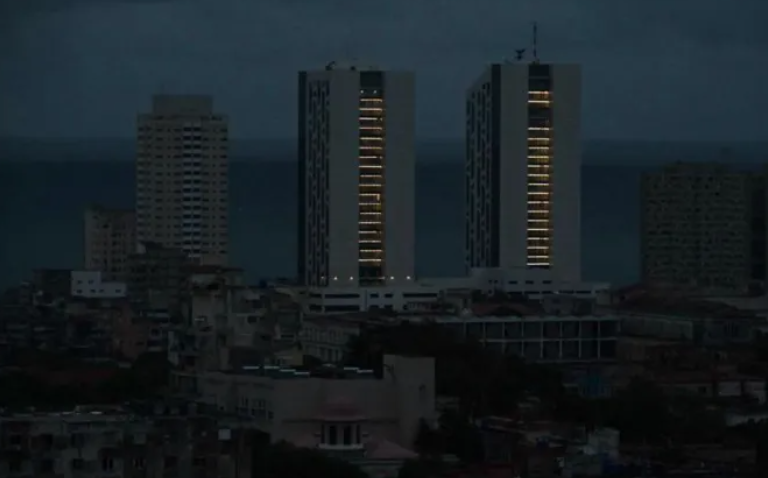Cuba is grappling with a nationwide blackout after its largest energy plant, the Antonio Guiteras power station in Matanzas, failed on Friday, cutting off power to the entire island’s 10 million residents. The grid collapsed around 11:00 local time (15:00 GMT), leaving officials uncertain about how long it will take to restore power. The country had already been facing prolonged blackouts, leading Prime Minister Manuel Marrero to declare an “energy emergency” just a day earlier.
President Miguel Díaz-Canel Bermúdez emphasized that addressing the blackout was his “absolute priority,” assuring citizens on X (formerly Twitter) that efforts to restore power were underway. Energy ministry officials confirmed that the process of restarting power plants across several regions had begun, but progress was slow.
In response to the crisis, schools and non-essential activities, including nightclubs, were closed until Monday, and non-essential workers were urged to stay home. Government services deemed non-vital were suspended, while citizens were asked to reduce electricity consumption by limiting the use of appliances like fridges and ovens during peak hours.
The blackout has caused widespread frustration. Eloy Fon, an 80-year-old resident of Havana, expressed concern over the “fragility” of the nation’s power system, while Bárbara López, a digital content creator, described it as the worst blackout she had experienced in her 47 years. Both voiced fears over the country’s unstable infrastructure, with López noting that the power outage had left her unable to work for days, cutting off not only electricity but mobile data as well.
Prime Minister Manuel Marrero addressed the public in a televised message on Thursday, blaming deteriorating infrastructure, fuel shortages and rising demand for the electricity failures.
“The fuel shortage is the biggest factor,” he said.
The head of the National Electric Union (UNE) Alfredo López Valdés also acknowledged the island had been facing a challenging energy situation, with shortages chiefly to blame.
Extended blackouts – particularly one this widespread – are always a tense time in Cuba.
In part, because the ability to keep the lights on represents a potential public order issue for the Cuban Government.
In July 2021, thousands of protesters spilled into the streets in demonstrations sparked by days-long blackouts in much of the country.
The desperation caused by precious food stuffs going to waste in warm fridges and freezers was exacerbated by citizens going for days with no air-conditioning or ceiling fans in the island’s stifling heat.
In many buildings, electric pumps bring water to the taps, so no power also meant no water.
Furthermore, no petrol at the pumps means that people can’t work or use their cars to solve basic problems or tend to urgent needs.
The Cuban Government has become increasingly aware that many on the island have lost a degree of fear over speaking out about the many daily problems they face.
Some are even prepared to take to the streets and chant anti-government slogans, if conditions merit it.
In March, Hundreds of people in Cuba’s second-largest city, Santiago, staged a rare public protest over chronic power blackouts and food shortages.



